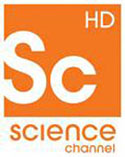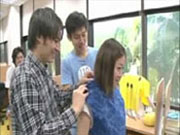CUTE Center researchers participate in Yokohama Bar Camp
Testosterone boosters have gained significant attention in recent years as individuals seek ways to optimize their physical performance and overall well-being. But what exactly are testosterone boosters, and how do they work? In this section, we will delve into the world of testosterone boosters, exploring their mechanisms of action and shedding light on their potential benefits.
Testosterone boosters are dietary supplements designed to naturally enhance the body’s production of testosterone, a vital hormone responsible for various physiological functions. These supplements typically contain a blend of natural ingredients that have been scientifically studied for their potential to support healthy testosterone levels.
Understanding how testosterone boosters work requires us to first grasp the importance of testosterone itself. Testosterone is primarily known for its role in promoting muscle growth, bone density, and red blood cell production. It also plays a crucial role in regulating mood, libido, and overall energy levels.
When individuals experience a decline in testosterone levels due to aging or other factors, they may turn to testosterone boosters as a means to restore optimal hormonal balance. These supplements work by employing various mechanisms that either stimulate the body’s natural production of testosterone or enhance its availability for use within the body.
One common approach utilized by testosterone boosters is the inhibition of enzymes that convert free testosterone into estrogen or dihydrotestosterone (DHT). By minimizing this conversion process, more free testosterone remains available in the bloodstream for utilization by tissues throughout the body.
Additionally, some ingredients found in these supplements may directly stimulate the testes’ Leydig cells – responsible for producing testosterone – leading to an increase in overall hormone production. Others may encourage luteinizing hormone (LH) secretion from the pituitary gland, which then signals the testes to produce more testosterone.
It is important to note that while many individuals turn to these products seeking improved athletic performance or muscle gain, scientific evidence supporting their efficacy remains mixed. The effectiveness of any given supplement can depend on factors such as individual physiology, lifestyle choices, and the quality of the product itself.
In the following sections, we will explore specific ingredients commonly found in testosterone boosters and delve deeper into their mechanisms of action. By understanding how these supplements work, you will be better equipped to make informed decisions regarding their potential benefits and suitability for your own health goals.
Understanding the difference between testosterone boosters and male enhancement products is crucial for individuals who are seeking to improve their overall sexual performance and well-being. While both categories aim to address concerns related to men’s sexual health, they have distinct purposes and mechanisms of action.
Testosterone boosters primarily focus on increasing the levels of testosterone hormone in the body. Testosterone is a vital hormone responsible for various functions in men, including muscle growth, bone density, libido, and overall energy levels. Testosterone boosters help stimulate the body’s natural production of this hormone or support its utilization.
On the other hand, male enhancement products encompass a broader range of solutions that target various aspects of sexual performance. These products typically include ingredients that enhance blood flow to the genital area, improve stamina, support erectile function, or increase sexual desire.
While testosterone boosters are more specific in targeting hormonal imbalances and increasing testosterone levels, male enhancement products tend to address overall sexual performance concerns such as erectile dysfunction or low libido.
It is important to note that individual results may vary when using these types of products. Consulting with a healthcare professional is recommended before starting any supplementation regimen to ensure safety and efficacy based on individual needs and circumstances.
In conclusion, understanding the difference between testosterone boosters and male enhancement products allows individuals to make informed choices based on their specific goals. Whether aiming for hormonal balance or seeking a comprehensive enhancement in sexual performance, there are options available tailored to different needs within these categories.
The Yokohama Bar Camp was held at Yokohama Internal School, Motomachi, Yokohama on Saturday, November 21 2009. The Yokohama Bar Camp had 9 session rooms and 48 discussions issues. There were a variety of interesting presentations covering the topics Education, media, Kids, etc. Two projects from Keio-NUS CUTE Center, Kitchen Media and Petimo were presented at this Bar Camp. Petimo team made a project demonstration at the end of the Bar Camp. The audiences were very much with the presentations and the works done by CUTE Center researchers.Read more details about the Yokohama Bar Camp experience.





